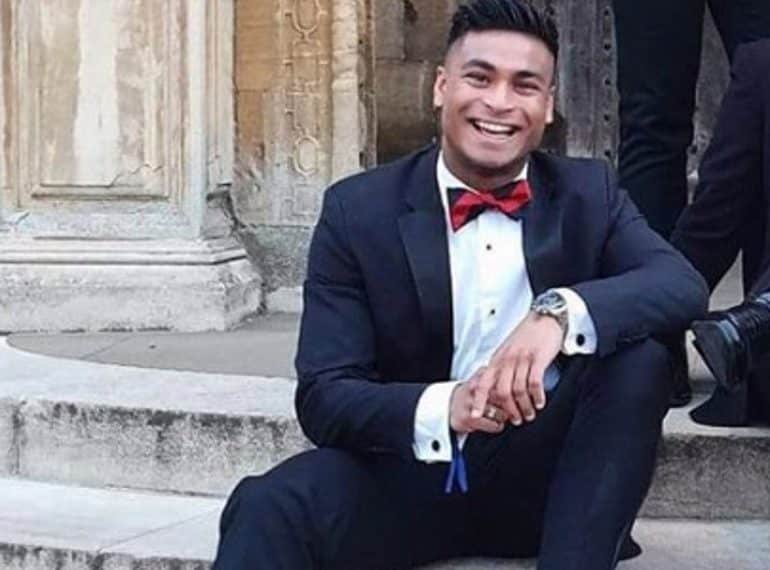
Architecture student Nabil Haque has enjoyed stellar academic success in his final year at Jesus College, Cambridge, winning a string of prizes and accolades.
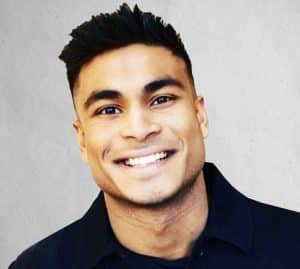 Nabil (OE 2010–2017) graduates with the highest-possible class of degree – Double First with Distinction – and an overall score of 80 out of 100, which is the top mark recorded by the university’s Architecture department in five years.
Nabil (OE 2010–2017) graduates with the highest-possible class of degree – Double First with Distinction – and an overall score of 80 out of 100, which is the top mark recorded by the university’s Architecture department in five years.
He thus won the award for the best Architecture student of his year, having also secured several other college prizes for academic performance, including the Sir Leslie Martin Prize for Architecture.
“The grade I received this year makes me eligible for the BASS Fellowship, a fully-funded, expenses-covered two-year scholarship to Yale University, where I wish to pursue my Part II Architecture Master’s. I am currently completing my year in industry at Caruso St John Architects, winner of the RIBA Stirling Prize in 2016.”
He has been nominated by Cambridge for the: Architects’ Journal National Student Awards; Royal Institute of British Architects (RIBA) President’s Medal Bronze Award for Undergraduate Portfolio, and RIBA President’s Medal Dissertation Award. “The RIBA President’s Medals in particular are the most prestigious architectural awards in the world, and it has been an honour to be nominated by the university for them.”
Yet, says Nabil, his final year at Cambridge “has been by no means an easy one, with strikes for eight weeks during the first term and coronavirus relegating my final term to home-based learning”.
Nabil says QE has remained at the forefront of his mind throughout his time at Cambridge, where, he found, the School’s reputation preceded him: “It is no exaggeration to say that professors, tutors and even my peers always recognise a ‘QE boy’.”
He was involved in many areas of School life, for example, captaining the First XV and winning a place on the Royal Academy of Arts’ attRAct programme in the Sixth Form.
He pays particular tribute to Head of Art Stephen Buckeridge for the instrumental role he played in the formative stages of his education, pointing out that he was one of no fewer than three QE boys in his year on Cambridge’s extremely competitive Architecture degree course (together with Danny Martin and Tochi Onuora). It was, he said, the “freedom, confidence and individuality” that Mr Buckeridge fostered during their Sixth Form years which enabled them to navigate their design projects so successfully. “QE is the most represented school across all three years of Architecture undergraduates at Cambridge,” Nabil says.
He also maintains strong links with other QE alumni in his year at Cambridge, counting Christopher Deane, Viral Gudiwala and Tomas Viera-Short among his close friends.
“My time at Cambridge was by and large a direct extension of my time at QE. I represented the university for rugby (Second XV) and athletics, I held positions on the Jesus College Student Union (including Black and Minority Ethnic Officer), was a student representative for the Jesus College Legacies of Slavery Committee and was, in 2019, responsible for the first-ever art exhibition exclusively for BME exhibitors.
“The confidence to take up such positions, pursue my interests and further myself physically, mentally and academically all stem from the foundations I laid down at QE.”

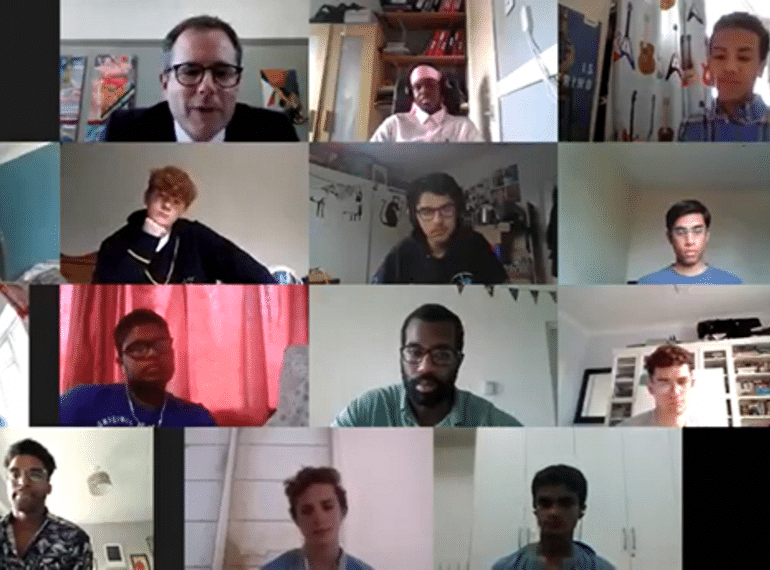
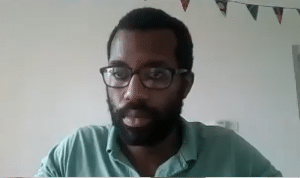 Kelvin (OE 1999–2006) recalled one incident when, as an 11-year-old, he went to a football camp in Totteridge Lane. Another participant made a racist comment to him, but he did not understand it, so asked his mother about it when he got back.
Kelvin (OE 1999–2006) recalled one incident when, as an 11-year-old, he went to a football camp in Totteridge Lane. Another participant made a racist comment to him, but he did not understand it, so asked his mother about it when he got back. Kelvin’s brother, Elliot (2002–2009), a property specialist in London, thanked Thomas and Ayodimeji for chairing the discussion and praised QE for supporting Perspective: “Not every single school and teacher would be willing to use their time to facilitate this sort of thing.”
Kelvin’s brother, Elliot (2002–2009), a property specialist in London, thanked Thomas and Ayodimeji for chairing the discussion and praised QE for supporting Perspective: “Not every single school and teacher would be willing to use their time to facilitate this sort of thing.”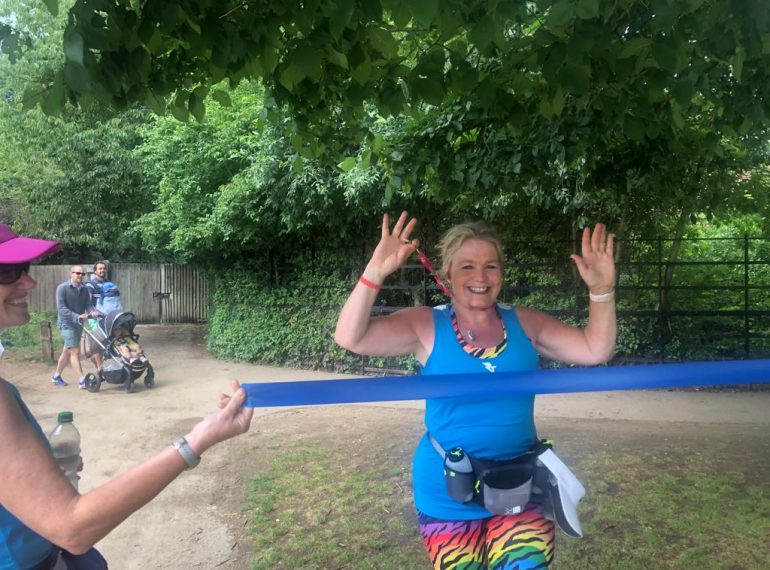
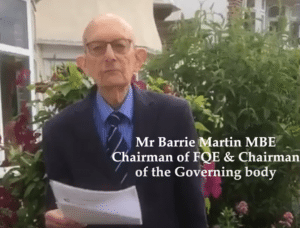 While the normal full Founder’s Day programme – including morning church service and afternoon fete – was not possible this year because of the coronavirus lockdown, organisers from the School and the Friends of Queen Elizabeth’s were nonetheless determined to make it a virtual event to remember.
While the normal full Founder’s Day programme – including morning church service and afternoon fete – was not possible this year because of the coronavirus lockdown, organisers from the School and the Friends of Queen Elizabeth’s were nonetheless determined to make it a virtual event to remember.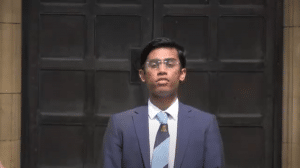 By 3pm today, nearly three-quarters of the £20,000 target had been raised through the dedicated
By 3pm today, nearly three-quarters of the £20,000 target had been raised through the dedicated 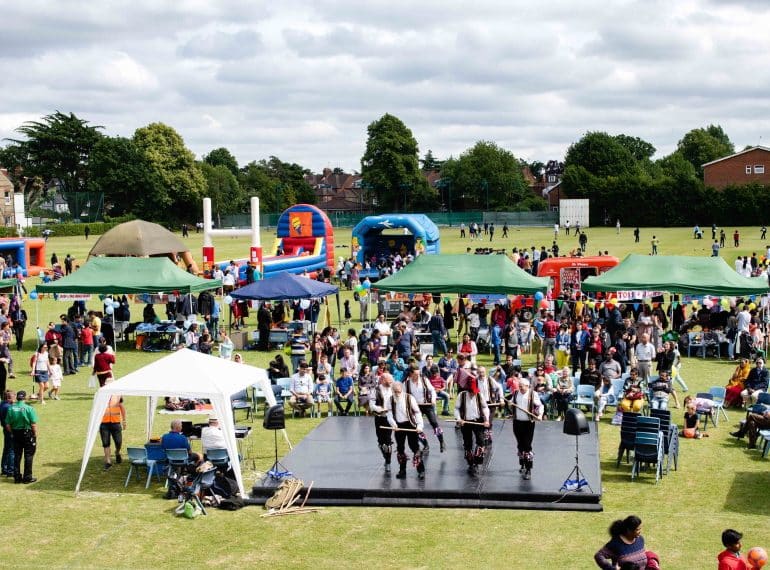
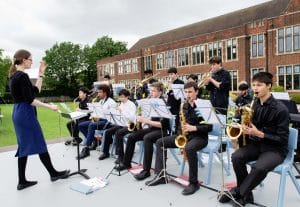 Together they have laid on a rich digital programme that showcases creativity with entertainment: attractions include high-quality musical performances from some of the School’s leading musicians, an exclusive live video curry Cook-Along from a professional chef and a special message from Old Elizabethan Robert Rinder (TV’s Judge Rinder, OE 1989–1994).
Together they have laid on a rich digital programme that showcases creativity with entertainment: attractions include high-quality musical performances from some of the School’s leading musicians, an exclusive live video curry Cook-Along from a professional chef and a special message from Old Elizabethan Robert Rinder (TV’s Judge Rinder, OE 1989–1994).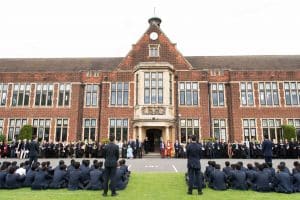 Founder’s Day is FQE’s single biggest annual fundraiser for the School. Mr Enright appealed for people to give especially generously this year, since the School is facing a coronavirus-related drop in income due to the reductions in external lettings. FQE have made it quick and easy to give by setting up a dedicated
Founder’s Day is FQE’s single biggest annual fundraiser for the School. Mr Enright appealed for people to give especially generously this year, since the School is facing a coronavirus-related drop in income due to the reductions in external lettings. FQE have made it quick and easy to give by setting up a dedicated 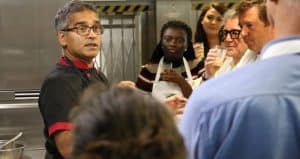 That is followed after a short gap at 12.45pm by the
That is followed after a short gap at 12.45pm by the 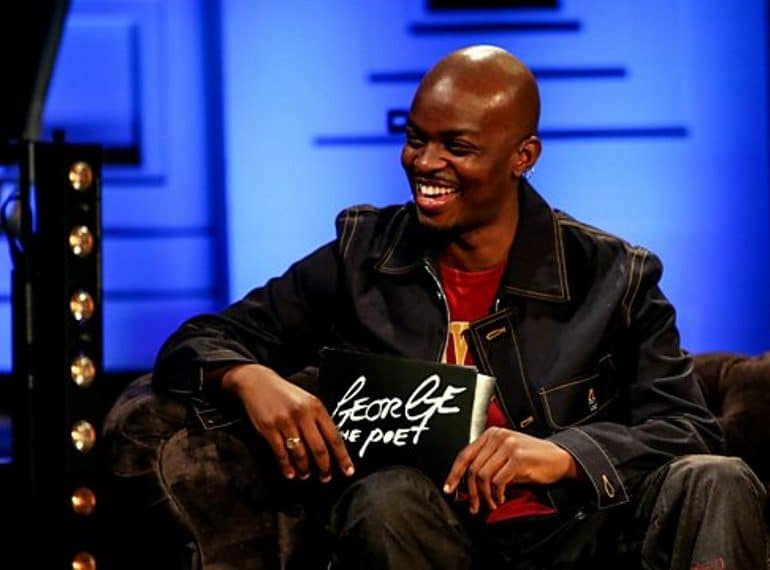
 Have You Heard George’s podcast?, which last year swept the board at the British Podcast Awards, is the first British podcast ever to receive a nomination for a Peabody Award, a prize which recognises excellence in storytelling in broadcasting and digital media.
Have You Heard George’s podcast?, which last year swept the board at the British Podcast Awards, is the first British podcast ever to receive a nomination for a Peabody Award, a prize which recognises excellence in storytelling in broadcasting and digital media.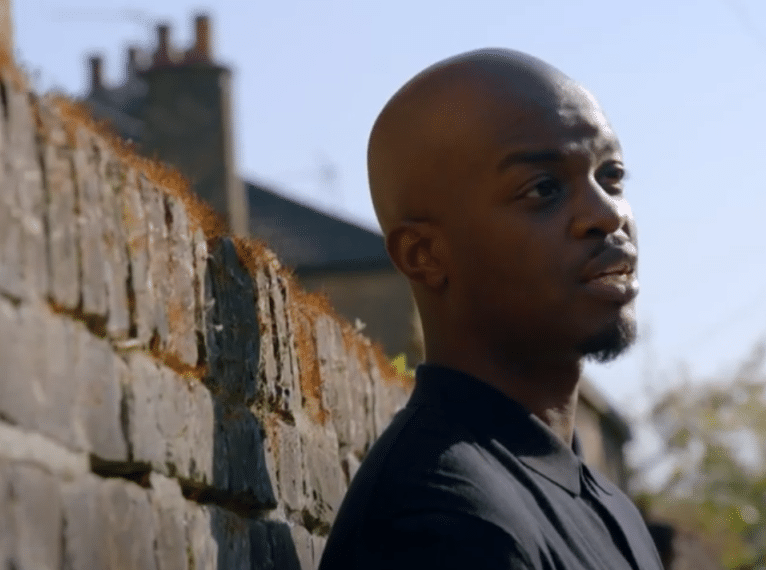
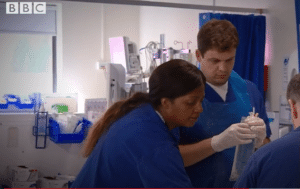 Headmaster Neil Enright said: “As ever, George’s words were both thoughtful and inspiring, his striking turn of phrase perfectly capturing the sacrifices being made by front-line workers and expressing back to them the nation’s gratitude.”
Headmaster Neil Enright said: “As ever, George’s words were both thoughtful and inspiring, his striking turn of phrase perfectly capturing the sacrifices being made by front-line workers and expressing back to them the nation’s gratitude.” George’s poem refers to a wide variety of people in key roles, including not only health workers but also bus drivers, teachers, cleaners, carers and those in waste management. Several of these jobs and those of other key-worker roles are depicted in George’s video, which also shows deserted city streets.
George’s poem refers to a wide variety of people in key roles, including not only health workers but also bus drivers, teachers, cleaners, carers and those in waste management. Several of these jobs and those of other key-worker roles are depicted in George’s video, which also shows deserted city streets.